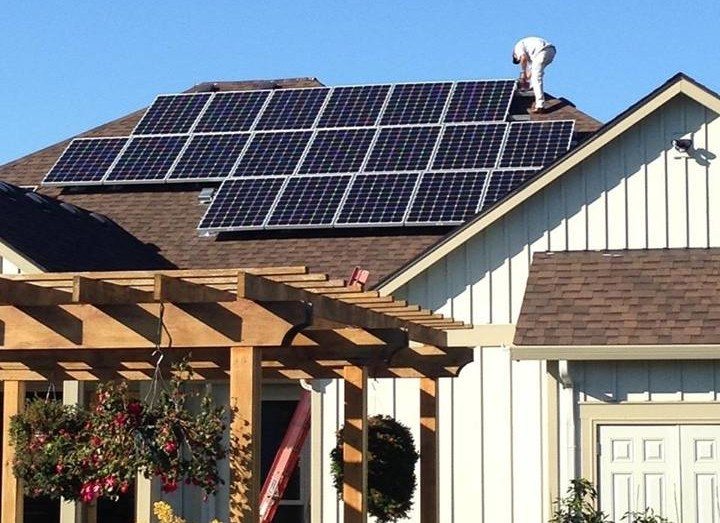Dan Tracy doesn’t need the sun to shine in order to hire more employees at his solar company. He needs the Washington Legislature to act.
“I told Rep. Ed Orcutt (R-Kalama): If we get a bill passed that’s got some teeth to it, then it will mean immediate job creation with my company alone,” said Tracy, owner of Woodland-based Premier Solar Northwest. “The next day we’ll be looking to bring more people on.”
Jobs in the solar industry have boomed in Washington in the past decade. But with changes to state subsidies looming, those fortunes could change.
“We know that states that make solar a priority are really reaping the environmental and economic benefits,” said Bruce Speight, executive director of Environment Washington. “Certainly the incentives have been a big boost to solar manufacturing and solar installations. We want to make sure that continues.”
Tracy said he could go from six to 10 employees if the right bill passes, though he’s not sure House Bill 2346 is the right way to accomplish that.
“I have to be cautious right now,” Tracy said.
He called Republican District 20 Rep. Orcutt this week just before the House approved that bill 77-20 and sent it to the Senate.
Tracy said there is a happy medium regarding state subsidies — higher than what the bill proposes and lower than what has been paid for years now.
“They’re so high that now we’re out of money in Clark County,” he said. “That served its purpose to get a groundswell moving,” and now something more sustainable needs to be set up, he said.
Clark Public Utilities recently realized it had signed up too many people for the solar incentives, meaning everyone in the program could see less money than they were promised. That led to a pause on new applications for solar subsidies.
“We’re not operating in Clark County right now since they’re in limbo,” said Mason Kiemele of GreenLight Solar, which is based in Vancouver, though it operates throughout the region. “We’ve had five or six installs this month. Usually, we have 10 to 20, half of that in Clark County.”
Kiemele said the bill moving through the Legislature, which would cost the state more than $10 million over the next five years, could help that.
A big part of HB 2346 is the expansion of state subsidy money for local utilities, which would allow them to pay out subsidies at previously promised levels — $5,000 per year for five years.
A dozen utilities in the state somehow found themselves with too many solar users and only so much money to go around. Snohomish PUD is facing a 30 to 50 percent reduction in subsidy payments, and Seattle City Light and Puget Sound Energy could cut payments by up to 30 percent.
“It’s sad for existing homeowners and manufacturers,” Kiemele said.
While Washington looks to turn up the dimmer switch, other states have seen the solar industry surge.
A new report by research group The Solar Foundation shows that solar jobs in the state have lagged behind the growth enjoyed by much of the rest of the country.
Nationally, solar jobs have grown 12 times faster than the rest of the economy for the past several years, according to the foundation. In 2015, Oregon added 900 jobs in the industry and Colorado picked up 800 while Washington saw 138 jobs disappear.
However, that loss could be due to a change in methodology.
“Anecdotally, installers have told me that they are seeing nothing but growth in the industry in Washington,” said Speight with Environment Washington, “and the solar production incentives are a part of it and critically important to continued job and economic growth in the industry.”
The bill on the solar industry is bound for a hearing in the state Senate on Feb. 24.




